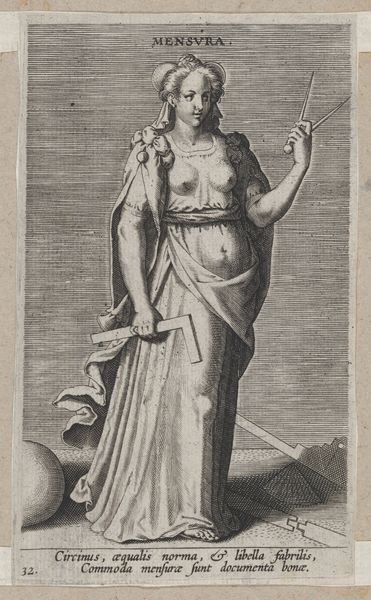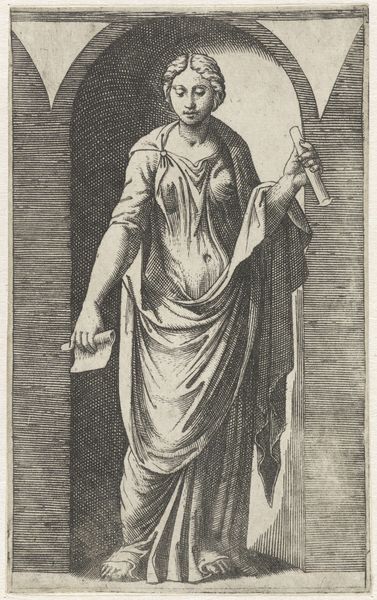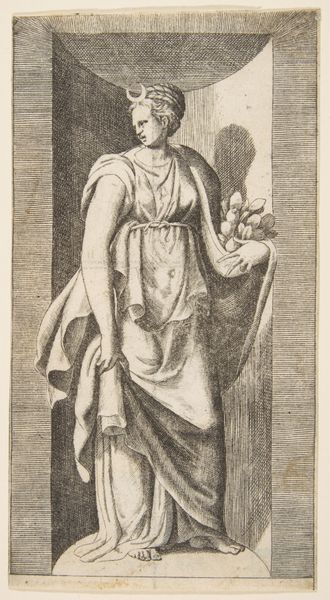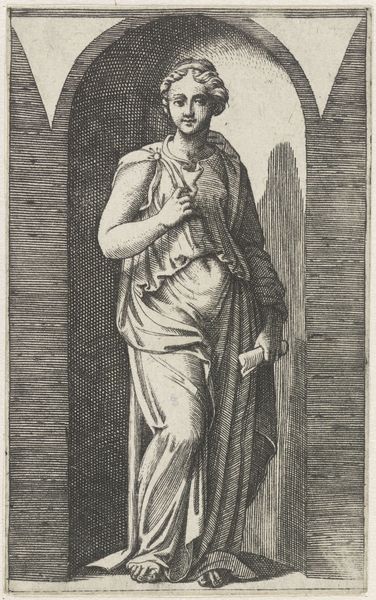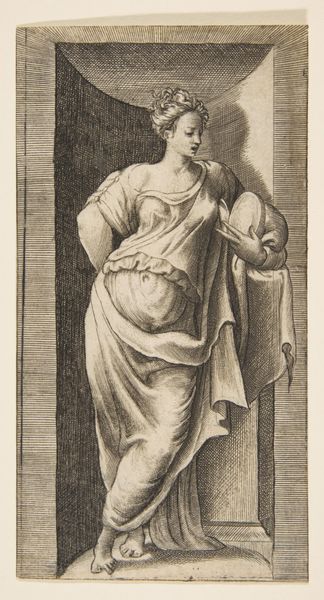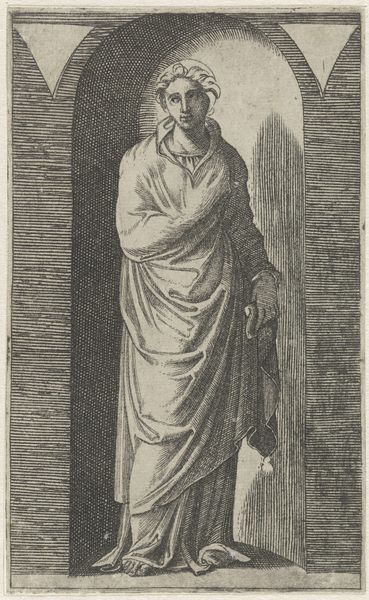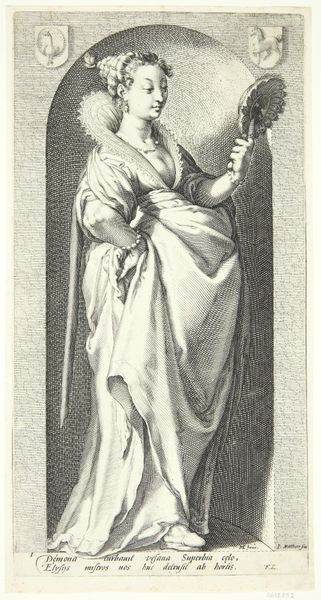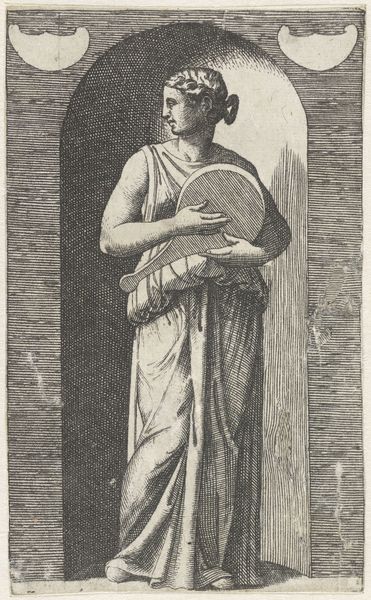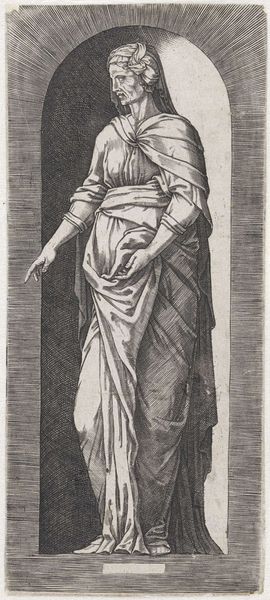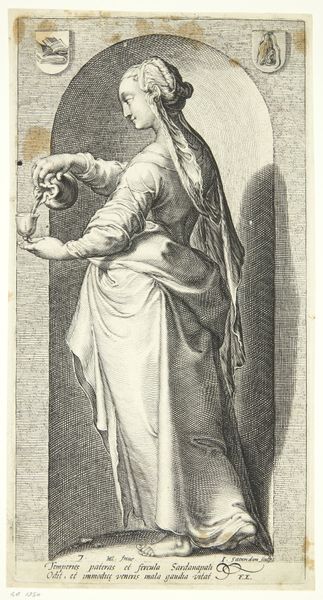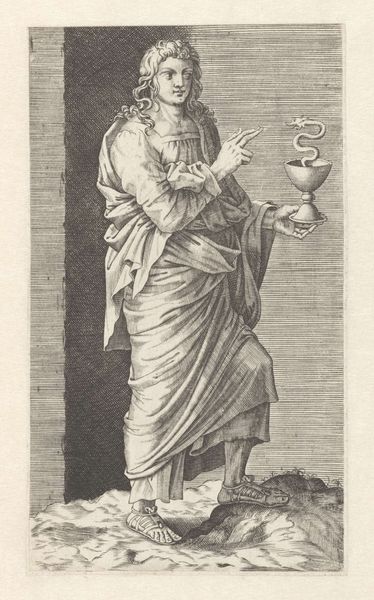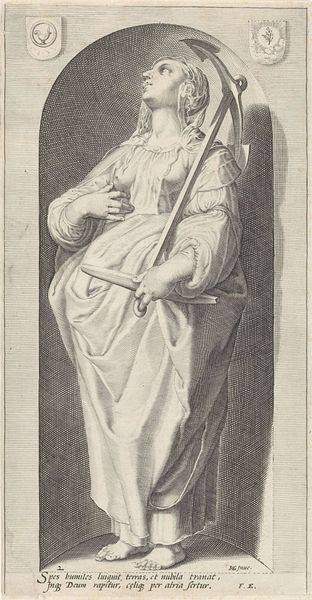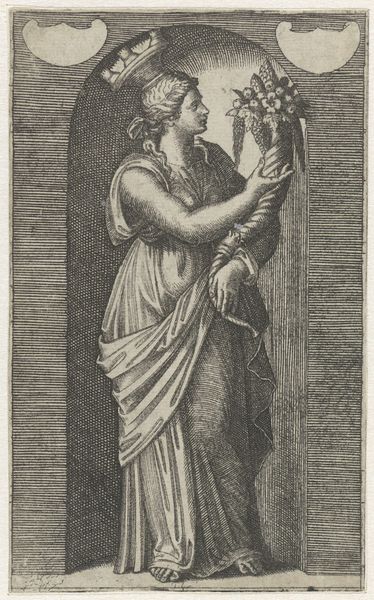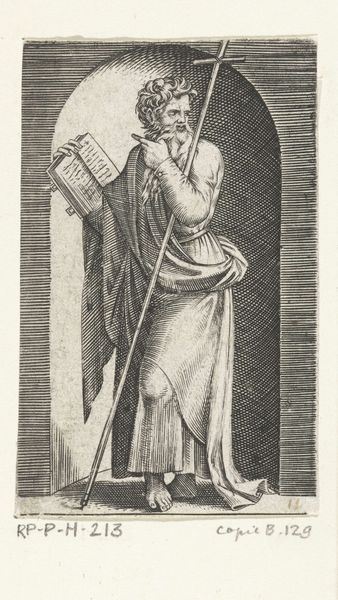
print, engraving
# print
#
figuration
#
11_renaissance
#
line
#
history-painting
#
italian-renaissance
#
engraving
Dimensions: height 128 mm, width 80 mm
Copyright: Rijks Museum: Open Domain
Marcantonio Raimondi created this engraving of a muse with a harp in Italy sometime between 1500 and 1534. Here, Raimondi draws on classical antiquity to lend authority to art, music and poetry. The muse stands in a niche as if she were a sculpture in a museum. This kind of visual strategy was very common in the Renaissance as an appeal to the cultural values of ancient Greece and Rome. These values - beauty, harmony, proportion, and order - are meant to elevate the status of artistic practice, and signal that art has public value. To understand this image better, we can look at Renaissance social and institutional history, asking how people viewed art and music at the time, and what purposes they served. We can also ask how museums have promoted a particular view of art, and how that view has changed over time. By exploring the history of art and its institutions, we can gain a deeper understanding of its cultural significance.
Comments
No comments
Be the first to comment and join the conversation on the ultimate creative platform.
